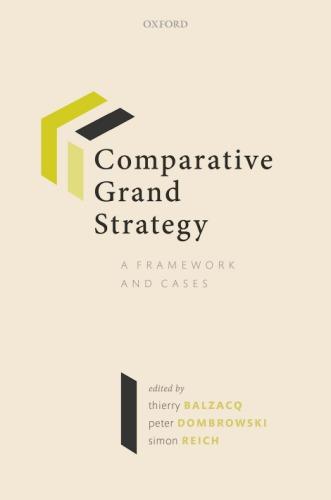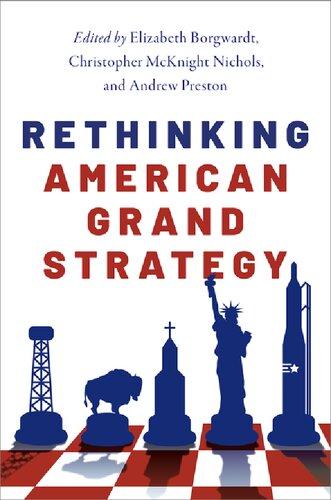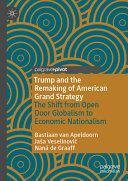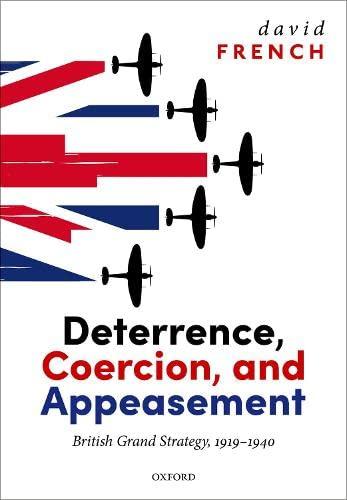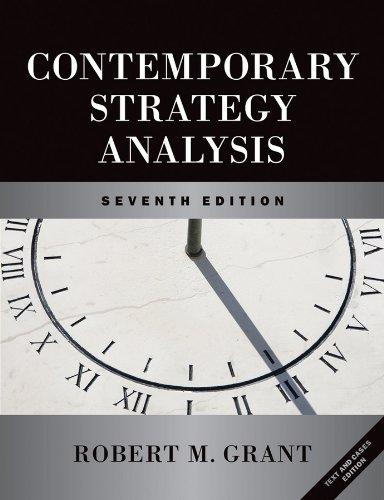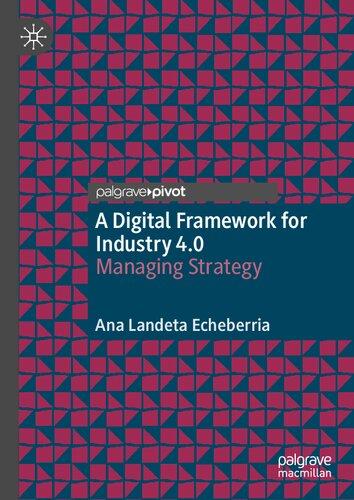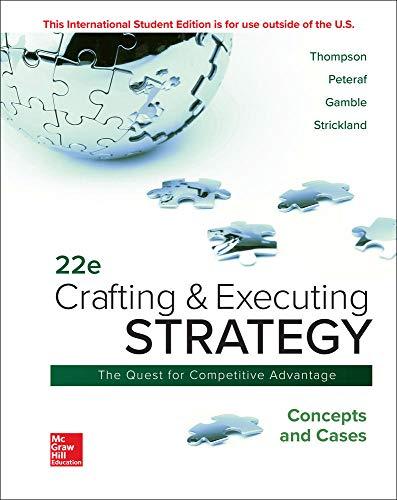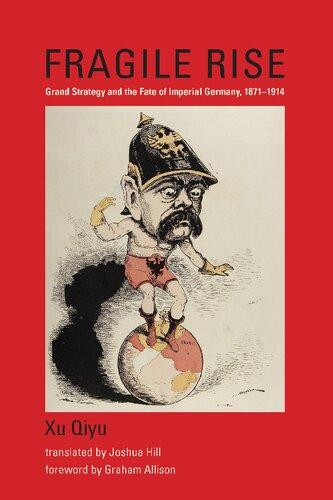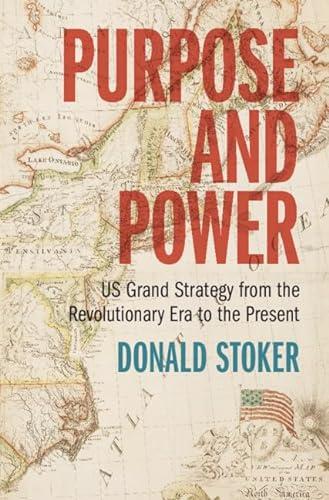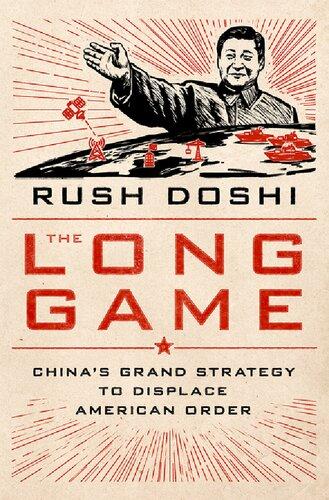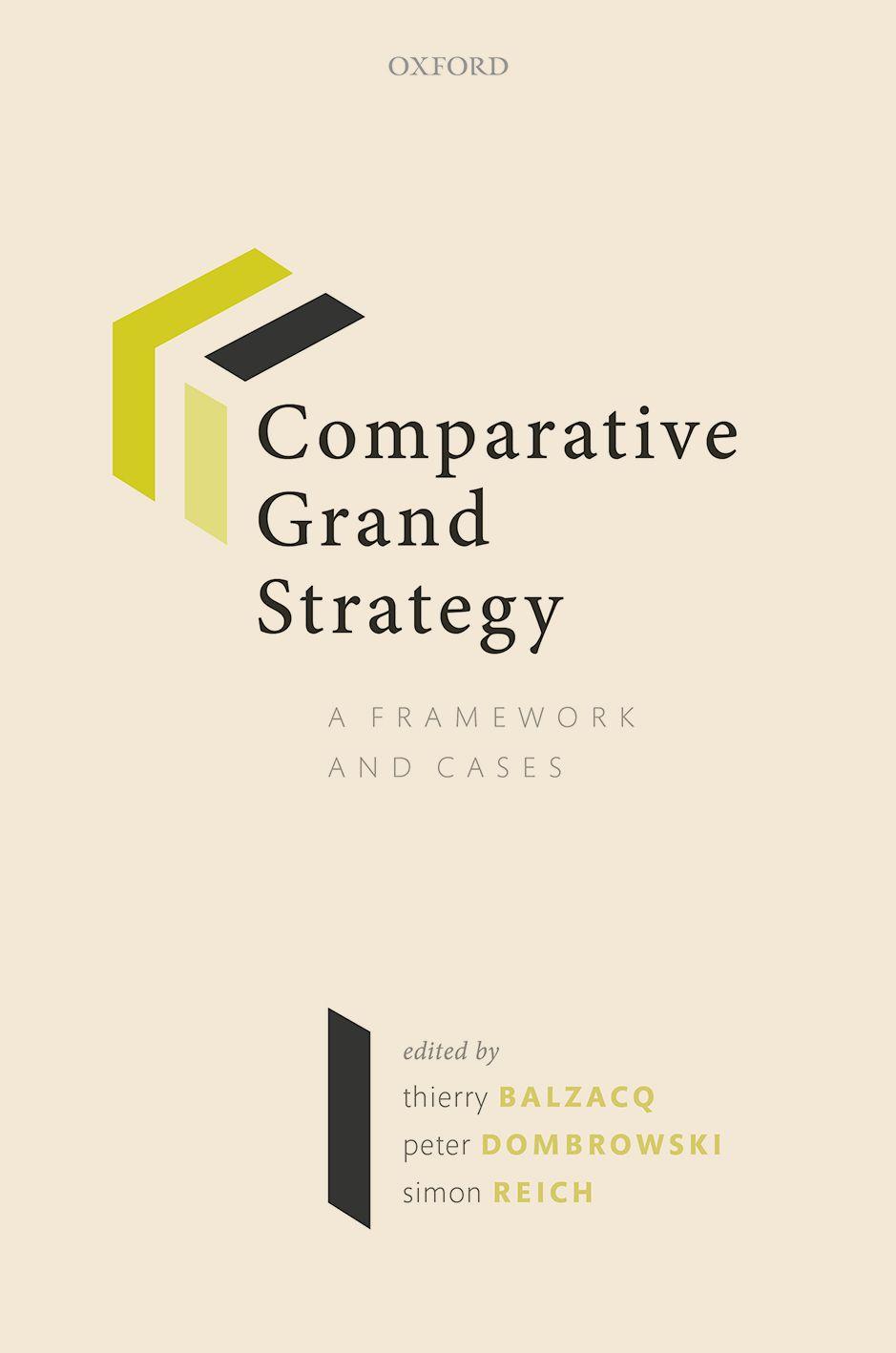■ LISTOFCONTRIBUTORS
Editors
ThierryBalzacq isProfessorofInternationalRelationsatSciencesPoParisand ProfessorialFellowatCERI-Sciences-Po.HewasformerlyaVisitingFellowatthe Asia-PacificCollegeofDiplomacyattheAustralianNationalUniversity(2017–18).In 2016,hewasawardedaFrancquiResearchChair(Belgium’shighestacademictitle) andelectedVisitingProfessorattheLondonSchoolofEconomicsandPolitical Science.HewastheScientificDirectoroftheFrenchMinistryofDefense’sresearch center(2014–16).AformerPostdoctoralFellowatHarvard,BalzacqheldanHonorary ProfessorialFellowshipattheUniversityofEdinburgh,wherehewasalsoFellowfor “outstandingresearch” attheInstituteforAdvancedStudiesintheHumanities.In 2015,hewasawardedaTier1CanadaResearchChairinDiplomacyandInternational Security. “Tier1Chairsareforoutstandingresearchersacknowledgedbytheir peersasworldleadersintheir fields.” Hisarticleshavebeenpublishedin Review ofInternationalStudies, SecurityStudies, EuropeanJournalofInternationalSecurity, InternationalStudiesReview, CooperationandConflict, EuropeanJournalofInternationalRelations, SecurityDialogue, InternationalRelations,andthe Journalof CommonMarketStudies.Heisauthor/editorofovertwelvebooksinEnglishand French.Hehasheldvisitingpositionsatvariousuniversities,includingMcGill,the DiplomaticAcademyofVietnam,theNationalUniversityofSingapore(NUS),The InternationalRelationsInstituteofCameroon(IRIC),Aberystwyth,andtheUniversity AbdouMoumouniofNiamey(Niger).Heiscurrentlyco-editing(withRonaldKrebs) TheOxfordHandbookofGrandStrategy.BalzacqholdsaPhDfromtheUniversityof CambridgeandcompletedhisPostdoctoralstudiesatHarvardin2004.
PeterDombrowski isaProfessorofStrategyintheStrategicandOperationalResearch DepartmentaswellastheDirectoroftheCyberandInnovationPolicyInstituteatthe NavalWarCollege.HispriorpositionsincludeChairoftheStrategicResearch Department,DirectoroftheNavalWarCollegePress,editorofthe NavalWarCollege Review,co-editorof InternationalStudiesQuarterly,AssociateProfessorofPolitical ScienceatIowaStateUniversity,anddefenseanalystatANSER,Inc.Hehasalsobeen affiliatedwithresearchinstitutionsincludingtheEast-WestCenter,TheBrookings Institution,theFriedrichEbertFoundation,andtheWatsonInstituteforInternational StudiesatBrownUniversity.DrDombrowskiistheauthorofoversixtybooks, monographs,articles,bookchapters,andgovernmentreports.Dombrowski’sawards includeaChancellor’sScholarshipforProspectiveLeadersfromtheAlexandervon HumboldtFoundation,theNavyMeritoriousCivilianServiceMedal,andtheNavy DistinguishedCivilianServiceMedal.HereceivedhisBAfromWilliamsCollegeand anMAandPhDfromtheUniversityofMaryland.
SimonReich isaProfessorintheDivisionofGlobalAffairsandDepartmentofPolitical ScienceatRutgers,NewarkandaChercheurAssociéattheCentredeRecherches Internationales(CERI),SciencesPo(Paris).Reichisauthor,coauthorandeditorof
elevenbooksandoversixtyarticlesorbookchapters.Reich’sworkhasbeentranslated intoChinese,Dutch,French,German,Japanese,andTurkish.Hismostrecentbook (withPeterDombrowski)isentitled TheEndofGrandStrategy:MaritimeOperations inthe21st Century (Cornell,2018).ReichalsopreviouslyservedasDirectorof ResearchandAnalysisattheRoyalInstituteforInternationalAffairs(Chatham House)inLondonandtheinauguralDirectoroftheFordInstituteforHumanSecurity attheUniversityofPittsburgh.
Contributors
AndrewS.Erickson isProfessorofStrategyin,andacorefoundingmemberof,theUS NavalWarCollege(NWC)’sChinaMaritimeStudiesInstitute.Ericksonalsoserveson the NavalWarCollegeReview’sEditorialBoard.HeisanAssociateinResearchat HarvardUniversity’sJohnKingFairbankCenterforChineseStudiesandamemberof theCouncilonForeignRelations.EricksonhastaughtcoursesatNWCandYonsei University.During2014–15hehelpedtoestablish,andtoescortthe firstiterationof, NWC’ s firstbilateralnavalofficerexchangeprogramand fieldstudiesclassinChina, whichhecontinuestosupport.In2013,whiledeployedinthePacificasaNaval PostgraduateSchoolRegionalSecurityEducationProgramscholaraboardthe flagship aircraftcarrierUSS Nimitz,hedeliveredtwenty-fivehoursoflectures.In2012the NationalBureauofAsianResearchawardedhimtheinauguralEllisJoffePrizeforPLA Studies.EricksonreceivedhisPhDandMAinpoliticsfromPrincetonUniversity. ProficientinMandarinChineseandconversantinJapanese,hehastraveledextensivelyinAsiaandlivedinChina,Japan,andKorea.Ericksonistheauthorofthebook ChineseAnti-ShipBallisticMissileDevelopment.Heiscoauthoroftwootherbooks: GulfofAdenAnti-PiracyandChina’sMaritimeCommonsPresence and Assessing China’sCruiseMissileAmbitions.HisresearchhasbeenpublishedwidelyinEnglishandChinese-languageeditedvolumesandinsuchpeer-reviewedjournalsas InternationalSecurity, ChinaQuarterly,and JournalofContemporaryChina.Itmaybe accessedviahttp://www.andrewerickson.com.
C.ChristineFair isaProvost’sDistinguishedAssociateProfessorintheCenterfor SecurityStudieswithinGeorgetownUniversity’sEdmundA.WalshSchoolofForeign Service.ShepreviouslyservedasaseniorpoliticalscientistwiththeRANDCorporation,apoliticalofficerwiththeUnitedNationsAssistanceMissiontoAfghanistanin Kabul,andaseniorresearchassociateatUSIP’sCenterforConflictAnalysisand Prevention.HerresearchfocusesonpoliticalandmilitaryaffairsinSouthAsia (Afghanistan,Pakistan,India,Bangladesh,SriLanka).Hermostrecentbookis In TheirOwnWords:UnderstandingtheLashkar-e-Tayyaba (OxfordUniversityPress). Additionally,shehasauthored,coauthored,andco-editedseveralbooks,including FightingtotheEnd:ThePakistanArmy’sWayofWar (OxfordUniversityPress), Pakistan’sEnduringChallenges (UniversityofPennsylvaniaPress,2015), Policing Insurgencies:CopsasCounterinsurgents (OxfordUniversityPress,2014); Political IslamandGovernanceinBangladesh (Routledge,2010); TreadingonHallowedGround: CounterinsurgencyOperationsinSacredSpaces (OxfordUniversityPress,2008); The MadrassahChallenge:MilitancyandReligiousEducationinPakistan (USIP,2008), FortifyingPakistan:TheRoleofU.S.InternalSecurityAssistance (USIP,2006);and
TheCuisinesoftheAxisofEvilandOtherIrritatingStates (GlobePequot,2008).DrFair isafrequentcommentatorinprint(NewYorkTimes, ForeignAffairs, ForeignPolicy, The NationalReview amongothers)aswellontelevisionandradioprograms(CBS,BBC, AlJazeera,CNN,VoiceofAmerica,Fox,Reuters,BBC,NPR,amongothers).Sheisa memberoftheCouncilonForeignRelations,WomeninInternationalSecurity,InternationalStudiesAssociation,AmericanPoliticalScienceAssociation,andtheAmerican InstituteofPakistanStudiesandservesontheeditorialboardofnumerousscholarlyand policy-analyticjournals.ShehasaPhDfromtheUniversityofChicago,Departmentof SouthAsianLanguagesandCivilization,andanMAfromtheHarrisSchoolofPublic Policy,alsoattheUniversityofChicago.
DanielFiott isSecurityandDefenseEditorattheEUInstituteforSecurityStudies.He isalsoaVisitingProfessorattheInstituteforEuropeanStudiesattheFreeUniversity ofBrussels(VUB)andaVisitingLecturerattheBrusselsSchoolofInternational StudiesattheUniversityofKent.From2012until2016heservedasaresearcheratthe FreeUniversityofBrussels(VUB).From2014until2016Danielwasafellowofthe ResearchFoundation Flanders(FWO).Hespecializesindefenseanddefenseindustrialmatters.HeholdsanMPhilfromtheUniversityofCambridgeandaPhD fromtheFreeUniversityofBrussels(VUB).
GhaidaaHetou receivedherPhDinpoliticalsciencefromRutgersUniversity,shealso holdsaBAandMAinEconomics,andanMSinGlobalAffairs.DrHetouis fluentin Arabic,English,andGerman.Herrecentbookistitled: TheSyrianConflict:TheRoleof Russia,IranandtheUSinaGlobalCrisis (Routledge2018).Herresearchfocuseson foreignpolicy,security,strategy,tradeandpoliticalriskintheMiddleEastandNorth Africa.DrHetoufoundedi-StrategicLLC,apoliticalriskconsultingcompanyspecializinginMiddleEastandNorthAfricaaffairs.ShealsoisanAdjunctProfessorat RutgersUniversity,theUnitedNationsandGlobalPolicyStudiesMastersprogram.
RobertJohnson istheDirectoroftheChangingCharacterofWar(CCW)research programatOxford.TheCCWProgrammebringstogetheracademics,policymakers, andarmedforcesprofessionalsinthestudyofarmedconflictanditsconsequences, pursuingavarietyofresearchthemesincludingthefuturecharacterofarmedconflict, violentnonstateactors,civil-militaryrelations,strategyanddecision-making,technologicaldevelopments,andthemoral-legaldimensionsofwar.RobJohnson’sprimary researchinterestsareinthehistoryofstrategyandwar,andhowtheseareunderstood andutilizedincontemporaryapplications.Robactsasaspecialistadvisortogovernmentsandinternationalarmedforcesonsecurity,stabilization,andstrategy.Hehas run “InsightandUnderstanding” coursesforanumberofagenciesonareasofsecurity interest.Heisauthor TheAfghanWayofWar (OxfordUniversityPress,2011),aswell asseveralotherworksonconflictsintheMiddleEast,Asia,andEurope.Hehas examinedtheproblemsofstrategyinavarietyofcontextsandpublications,anddraws attentiontothelocalperspectivesaswellasthedifficultiesofformingjudgements basedonaselectivereadingofhistoryoronthemisuseoftheoriesofinternational relationsandpolitics.Inanarticlein Parameters,on “predictingfuturewar,” Rob Johnsonanalyzed how wereachdeductionsaboutfutureoperatingenvironments.He hasrecentlycompletedamonographonthehistoryofpartneringirregularindigenous forces,andastrategicstudyoftheFirstWorldWarintheMiddleEast.Inorderto
encouragetheintroductionofnewthinkingintoBritishgovernmentpolicyondefense andsecurity,heconvenedtheUKstrategyforumforthetheChiefoftheDefenceStaff.
CélineMarangé isaresearchfellowattheInstituteforStrategicResearch(IRSEM),a researchcenteraffiliatedwiththeFrenchMinistryofDefense.Hercurrentresearch interestsincludeRussianforeignanddefensepolicy,Russianpoliticalandmilitary elites,RussianstrategyofinfluenceinEuropeandthepost-Sovietspace,andthe internationalconsequencesofRussianmilitaryinterventions.DrMarangéholdsa PhDinpoliticalsciencefromtheParisInstituteofPoliticalStudies(SciencesPo).Prior tohercurrentposition,shewasalectureratColumbiaUniversity,aFoxInternational FellowatYaleUniversity,andapostdoctoralfellowinColdWarhistoryatPanthéonSorbonneUniversity.AgraduateoftheInstituteofOrientalLanguagesandCivilizations(Paris),sheisalsoaRussiantranslator.Sherecentlyeditedandintroducedtwo specialissuesdevotedtoRussia’snewstrategicposture:onedealswiththereconfigurationoftheEuropeanorderintheaftermathoftheconflictinUkraine(Champsde Mars,Spring2017);theotheroneexploresRussianstrategicstrengthsandweaknesses, andthesecuritydilemmaforRussia(RevuedeDéfensenationale,2017).
CarlosR.S.Milani holdsa Doctorat fromthe EcoledeHautesEtudesenSciencesSociales (France,1997),andwasin2007aVisitingScholaratBerkeley’sCenterforLatin AmericanStudies.HeisAssociateProfessorattheRiodeJaneiroStateUniversity’ s InstituteforSocialandPoliticalStudies(IESP-UERJ),andSeniorResearchFellowwith Brazil’sNationalResearchCouncil(CNPq)andRiodeJaneiroStateResearchFoundation(FAPERJ).HeisalsoAssociateEditorofthe BrazilianPoliticalScienceReview. HisresearchagendafocusesonBrazilianforeignpolicy,internationaldevelopment politics,andcomparativeforeignpolicy.Hislatestpublicationsinclude: “Brazil’ s ForeignPolicyandtheGraduationDilemma,” InternationalAffairs (2017), Atlasof BrazilianForeignPolicy (CLACSO/EDUERJ,2015); “ThePoliticsofBrazilianForeign PolicyandItsAnalyticalChallenges,” ForeignPolicyAnalysis (2016).Duringhisstayat Berkeleyhestartedwritingabookwhoseprovisionaltitleis South-SouthCooperation andForeignPolicyAgendas:ComparingthecasesofBrazil,China,India,Mexico,South AfricaandTurkey.
TiagoNery receivedhisPhDinpoliticalsciencefromtheInstituteforSocialand PoliticalStudiesoftheStateUniversityofRiodeJaneiro(IESP-UERJ).Heisaa researcherattheWorldPoliticalAnalysisLaboratory/Labmundo(IESP-UERJ/IHACUFBA)andworksasacivilservantattheUndersecretariatforInternationalRelations, ExecutiveOfficeoftheStateGovernmentofRiodeJaneiro.Hisresearchagenda focusesonBrazilianforeignpolicy,internationalpoliticaleconomyandregional integration.Hismostrecentpublicationis BrazilianForeignPolicy:TheCoalitionsof PowerandUNASUR:RiseandDeconstructionofSouthAmericaasaGeopoliticalBloc (MuralInternacional,2018).
WendyRamadan-Alban isaPhDcandidateinsecuritystudiesattheUniversityof NamurandattheEHESS(EcoledesHautesEtudesenSciencesSociales,inParis), workingonIran’sstrategicthought.SheholdsadoctoralgrantfromtheFrench government.Shehaspublishedinthe EuropeanReviewofInternationalStudies.She graduatedinPersianlanguagefromtheDehkhodainstitutebasedinTehran.
NorrinM.Ripsman (PhDUniversityofPennsylvania,1997)isMonroeJ.Rathbone DistinguishedProfessorofInternationalRelationsatLehighUniversity.Hisprimary researchinterestsinclude:democracyandnationalsecurity,postwarpeacemaking, constructingregionalstability,thepoliticaleconomyofnationalsecurity,neoclassical realism,andtheimpactofglobalizationonnationalsecurity.Hehaspublishednine books,mostrecently PeacemakingfromAbove,PeacefromBelow:EndingConflict BetweenRegionalRivals (CornellUniversityPress,2016)and(withJeffrey W.TaliaferroandStevenE.Lobell) NeoclassicalRealistTheoryofInternationalPolitics (OxfordUniversityPress,2016),andovertwenty-fivepeer-reviewedarticlesin InternationalSecurity, InternationalStudiesQuarterly,SecurityStudies,andotherhighqualityoutlets.
EitanShamir isaSeniorLectureratthePoliticalStudiesDepartment,BarIlan UniversityandaSeniorResearchFellowwiththeBeginSadatCenterforStrategic Studies(BESACenter).Priortohisacademicposition,hewasinchargeofthe NationalSecurityDoctrineDepartmentattheMinistryofStrategicAffairs,Prime MinisterOffice.Heistheauthorof TransformingCommand:ThePursuitofMission CommandintheUS,UKandIsraeliArmies (StanfordUniversityPress,2011).His mostrecentbook(ed.)is InsurgenciesandCounterinsurgencies:NationalStylesand StrategicCultures (CambridgeUniversityPress,2017,withBeatriceHeuser).Shamir haspublishedmanyarticlesinleadingjournalsandvariousbookchaptersonthe topicsofmilitarystrategyandnationalsecurity.HeholdsaPhDfromtheDepartment ofWarStudies,King’sCollegeLondon.
LuisSimón isResearchProfessorattheInstituteforEuropeanStudies(VrijeUniversiteitBrussel)andDirectoroftheBrusselsofficeoftheRoyalElcanoInstitute.Heis alsoAssociateFellowattheRoyalUnitedServicesInstitute(RUSI)andtheBaltic DefenseCollege(Estonia),andamemberoftheEditorialBoardof Parameters:TheUS ArmyWarCollegeQuarterly.Luisisafrequentlecturerongeopoliticalandstrategic affairsatseveraluniversitiesanddefensecolleges,andhisresearchhasappearedin prestigiousjournals,suchas SecurityStudies, InternationalAffairs, JournalofStrategic Studies, Geopolitics, Survival, Orbis,the RUSIJournal, ComparativeStrategy, Parameters,and TheInternationalSpectator.Hiscurrentresearchinterestsincludethe evolutionofUSgeostrategyanditsimpactuponthetransatlanticrelationship;Europeansecurity;thefutureofNATO;andchanginggeostrategicdynamicsinAsiaand theirimplicationsforEurope.LuishasaPhDininternationalrelationsfromthe UniversityofLondon(RoyalHollowayCollege)andaMastersinEuropeanstudies fromSciences-Po(Paris).
ComparingGrandStrategiesinthe ModernWorld
THIERRYBALZACQ,PETERDOMBROWSKI,ANDSIMONREICH
Inthisbook,weoutlineanovel,comparative,andsystematicapproachtothe studyofgrandstrategy.Ourcontributorsthenuseittoexaminetencountries andtheEuropeanUnion.Ourgoal,aseditors,isambitious:toinitiateanew researchprograminthe fieldofgrandstrategythatlinksinternationalrelationstheorytoareastudies.Inthemostgeneralterms,weseektoaddresstwo lacunae.The firstisascholarlyrelianceonabstracttheorizingthatemploys rationalistassumptionsandthuspresupposeswhatothercountriesvalue, andhowtheyformulateandimplementstrategy.Inessence,weseekto re-emphasizetheimportanceofcontextinthestudyofgrandstrategy.The second,forpolicymakers,itistodescribethosevalues,processes,andstrategic goalsinawaythatmaymodestlyhelpavoidsomeofthecommonmishaps thathavecharacterizedpolicymakinginthetwenty-firstcentury.
Withinthatbroadrubric,weattempttoachievefourspecificobjectives.First, weproposeaconcretebasisonwhichtoanalyzecontemporarygrandstrategy beyondthecommonrationalistapproachadoptedbyLiberalsandRealists by emphasizingthesignificanceofperceptualfactors,suchashistoricalmemory andresultingnationalpathologies.Second,weimbuethestudyofgrandstrategy withthecharacteristicsofaproductiveresearchprogramcommonlyfoundin otherareasofinternationalrelationsandforeignpolicy includingstandardsfor theory-buildingandtesting.Third,wedevelopanewframeworkthatexplains howanation’sgrandstrategyisconstitutedandimplemented.Finally,we expandtheempiricalstudyofgrandstrategybeyondthewell-troddenexamples ofafewgreatpowers.
Thisvolumethereforecomparativelyexamineshowavarietyofstates(both “great” and “small”)deviseandexecutegrandstrategies.Italsoanalyzesthe consequencesofthosechoices.Statesstrategizeindiverseways:theyvaryin theirobjectives;inhowtheyformulatestrategy;inhowtheythinkaboutthe geographicscopeoftheirstrategy;inthetypeandamountofresourcesthat theyhaveattheirdisposal;andinthewaysinwhichtheyconfigurethose
resourcesinimplementingastrategy.Weattempttoreflectthatdiversity withinacommonframeworkthataddressesthewhy,who,what,andhowof grandstrategy.
1.1 Prevailingassumptionsandthequestions theygenerate
Americanscholarsdominatethegrowingliteratureongrandstrategy.But theirworkraisesanumberofimportantunanswered,andproblematic, questions.Succinctlystated,Americandebates(largelyamongandbetween RealistsandLiberals)arepredicatedon fivecommonassumptions.The firstis thatasingledefinitionofwhatconstitutesagrandstrategyisessentialto framingstudyinthe field.Yetwhichdefinitionshouldbeused,thecharacter ofthenationalinterest,andthuswhatformofstrategytoadoptremainheavily contested.Definitionsextendfromaclassicalapproachderivedfromhistorical researchonmajorwarstoaninternationalrelationsonethatstressesthe importanceofinstitutionbuilding.Second,onlyasuperpower(inpractice, solelytheUnitedStates),orminimallyagreatpower(extendingthelistto ChinaandRussia),hasthesufficientinstitutionalandmaterialresourcesto formulateandimplementagrandstrategy.¹Theuniverseofcasesworthyof studyisthereforenominal,thusjustifyingignoringotherpotentialcases despiteawealthofevidencethatothercountriescomprehensivelystrategize. Third,grandstrategizingispredominantlyarational,objectiveresponsetothe exigenciesoftheexternalenvironment.Somehistoriansandafewpolitical scientistsdoexaminethedomesticdeterminantsofgrandstrategy.Butthe vogueistofocusonsystemicconstraintsor,minimally,foreignthreatsand opportunitiesasthedriversofgrandstrategy.
Fourth,incontrasttotheimpressioncreatedbythenewscycleorthe wishfulthinkingofsomecommentators,theexternalenvironmentisactually quitestableandthefundamentalcharacteristicsoftheglobalsystemhas changedrelativelylittleinthetwenty-firstcentury.²Thethreatremains primarilystate-basedformanyscholarsworkinginthe fieldofgrandstrategy. ThequestionsincludewhetherthereisapressingneedtomaintainAmerican preeminence,whethertoaddressorsubverttheclaimsofrevisionistpowers, whetherthereisaneedtosustaintheliberalinternationalorderinitscurrent form,and, finally,howtheUnitedStatesshouldbest prescriptively balance questionsofstrategyandnationalresources.Finally,the fifthassumptionis thatthepurposeofgrandstrategy,andthusinpracticeAmericangrand strategy,ismoretoshapethenatureandcharacteristicsoftheglobalsystem thanadapttoit.Americanpolicymakerscanandshouldthereforedesigna
preemptiveandinpracticeenduring(and,asaresult,reasonablyinflexible) grandstrategy ratherthanareactive,adaptiveone chosenfromavarietyof optionsprescribedbyscholarsthatstretchfromisolationismatoneextremeto primacyattheother.Otherstateswillsimplyhavetoadjust.Hubrisis thereforeendemictothislastassumption.
Criticsofthischaracterizationmayjustifiablypointtogreaternuancein scholarshipandcertainlytoexceptions.Weconcur.Butthese fiveelements nonethelesspredominate,especiallyinscholarshipaboutUSgrandstrategy butalsoinsomewhatdifferentformsinworkonthegrandstrategiesofother greatpowers.Ourcollectiveworkthereforebeginsbyquestioningthese foundationalassumptions.Ineffect,weturnthemintoquestions,justified byourfocusonthevaryingdomesticoriginsofthegrandstrategiesthatour contributingauthorsstudy.
1.2 Countervailingassumptions
First,wetheorizethattheveryconceptionofwhatconstitutesagrandstrategy mayitselfbecontested.Scholarsoftenassociategrandstrategizingwitha particularinstitutionalstructure(acentralizedbureaucracy)ormeansof implementation(themilitary).But,asourcasessuggest,somecountries,for example,employwhatamountstoagrandstrategywhilenotbeingconscious thattheyareformallydoingsoorwithoutusingformalWesternstructures. Theybehaveinawayconsistentwiththeformulationofagrandstrategy withoutlabelingitassuch,preferringtoattributecomprehensiveformsof behaviorassimplyadheringtonationalvaluesorgoals.Somelackthe domesticbureaucraticstructureforformulatingstrategycommonlyassumed asarequisite.Othersstillmay(anddo)confoundtheseconceptionsofgrand strategybyutilizingtoolsunrecognizedbystandardpoliticalscience suchas proxygroups,networkorganizations,oreventribalaffiliationsratherthan componentsofthestate.Ortheymayemployelementsofsocialpower(such asreligiousfundamentalismdirectedthrougheitherformaleducationor onlinerecruitment)oftenoverlookedbyscholarsfocusingoninstrumentsof softpowersuchasmarketsormassculture.Astandardizeddefinitionofgrand strategyclearlyhasitsadvantages.Itdelineateswhattobothincludeand exclude andthereforewhattoanalyze.But,aswesubsequentlydiscuss,a narrowformulationofgrandstrategyoftenignoresimportantelementsbased onnationalhistory,values,andinstitutions.Excludingthemclasheswiththe intentofthesecross-nationalstudieswheretheseelementsmatterand,our countrystudiessuggest,areoftencriticalinexplainingbehavior.
Second,weevaluatewhetherotherstates,beyondgreatpowers,havethe institutionalandmaterialresourcestocreateandimplementwhatamountsto
agrandstrategy.Certainly,thismulti-country,cross-nationalstudyhighlights thefactthattherearedistinctparameterstosuchinitiatives.Grandstrategizinginevitablyvariesingeographicscope.Somestateshavearegionalfocus whileothershaveglobalaspirations.Theyalsoconsiderablydifferintheir resources,roughlyunderstoodas “militarypower,bureaucratic/administrative capacity,andthequalityandcoherenceofpoliticalinstitutions,”³aswellas theabilitytomustersocial,private,andreligiousinstrumentsforstateends. Asourcontributorsdemonstrate,policymakersbothvaryintermsofwhether theythinkabouttheirstrategizingas “grand” andiftheyhavetheinstitutions dedicatedtosuchatask oruseotherfacetsneglectedbymostinternational relations(IR)scholars.Nonetheless,ourfocusonthebreadthandcapacityfor suchbehaviorreformulatesanassumptionintoaquestionabouttheconditionsunderwhichstatescananddocreategrandstrategies andtheirvarying objectivesindoingso.
Third,wequestionboththerationalistandsystemicrootsofstrategizing. Overtwodecadesago,RichardRosecranceandArthurSteinpublisheda seminalarticleinwhichtheyarguedthatdomesticfactorshadbeenneglected asdeterminantsofgrandstrategy.⁴ Theirobservation,withafewcommendableexceptionsamonghistoriansandpoliticaleconomists,haslargelybeen ignoredbyIRscholarsinthegrandstrategyliterature.⁵ Inthisvolumewe returntotheiroriginalinsight,combiningthefundamentalsofIRtheorywith theknowledgeofcountryspecialistsfamiliarwiththehistoryandhistorical memory,domesticpolitics,decision-makingprocesses,strategicimperatives, andresourcecapacitiesofthecountriesthattheystudy.Wethusrejecta preponderantlysystemicandrationalistapproachinfavorofaheterogeneous onethatfocusesontheinteractionbetweentheexternalenvironment,subjectiveinterpretationsofthatenvironment,andthekeyhistoricalanddomesticpoliticalfactorsthatconditionstateresponses.
Thefourthassumptionthatwechallengeconcernsthecharacterofthe globalsystem.Thesimplified,elegantassumptionsembedded,forexample,in structuralrealismprovedlackinginpredictingthedeclineoftheSovietUnion, amongotherimportantdevelopments.⁶ Ananarchic,ifstable,systemassumed acontinuityinthebipolarsystemsubsequentlyconfoundedbyevents.Yet,at theriskofovergeneralization,anobduratepropensitytorelyonacommon assumptionthatthecharacteristicfeaturesofthatglobalsystemendure amongmanyrealistsandliberals,evenastheycontinuallydebatetheissue ofAmericandecline,ischallengedbythecapacityofstatesthatarenotgreat powerstodestabilizethesystem asNorthKorea’sbehaviorin2017acutely demonstrates.Newelementsofpower suchascyberwarfare,forexample havecreatedschismsintheseformulations.Wethusquestionacontinued focusontheattributesoftheglobalsystem,whetheritisanarchic(Realists)or increasinglyinstitutionalized(Liberals).Instead,aswesubsequentlydiscuss, wefocusonitsdynamicfeaturesthatunderpinits fluidityinthetwenty-first
century⁷—notablytheproliferationofactors,threats,andformsofconflict that influencetheformulationandimplementationofgrandstrategy,albeiton differentstatesindifferentways.
And finally,wequestiontheassumptionoftheverypurposeofagrand strategy.StephenKrasneroffersarepresentativeviewamongAmerican scholarswhenhestatesthat
Agrandstrategyisaconceptualframingthatdescribeshowtheworldis,envisions howitoughttobe,andspecifiesasetofpoliciesthatcanachievethatordering.Grand strategiesaredesignedtomoldtheinternationalenvironmentbyregulatinginternationalregimes,influencingtheforeignpolicychoicesmadebyotherstates,and shapingorevendeterminingthedomesticregimecharacteristicsofothercountries.⁸
Butifyoubeginwiththeassumptionthatthepurposeofgrandstrategy primarilyinvolvesmoldingtheglobalsystem,ratherthanrespondingtoits exigencies,thenthebeliefthatfewstatescandosoisself-affirming,perhaps eventautological:onlythefewcan(grandstrategize),soweshallstudyonly thefewwhodo.Incontrast,askingthequestions: “Whodoesstrategize?How dotheydoit?Andwithwhatgoalsinmind?” releasesusfromthatconstraint. Intheensuingpages,wedevelopthesecriticisms.Andinthecasestudy chaptersthatfollow,thecontributorsattempttoaddressthemempirically, introducingawholepotential fieldofstudy.Aswithmostgeneralizations,our contributorsvaryinthedegreetowhichtheyshareconventionalassumptions or,conversely,theeditors’ counter-assumptions.
1.3 Definingandclassifyinggrandstrategy
Thecontemporarystudyofgrandstrategyisrifewithdebatesaboutwhich definitiontoemploy.⁹ Scholarsoftentalkpasteachotherwithoutagreementon auniversaldefinition.Someseegrandstrategyaspartofforeignpolicy.¹⁰ Invertingthisview,othersbelieveit “encompass(es)foreignpolicy,military doctrine,andeventactics.”¹¹Still,othersconsideritlargelyasynonymof strategy.¹²Forthepurposesofthevolume,weaccepttheconventionalassumptionthatgrandstrategylinksexplicitvaluesto “ways,meansandends.”¹³
Butasubstantialspectrumexistswithinthatbroadparameter.LukasMilevskihasidentifiedalackofconsensusinthemeaningofgrandstrategy,which heattributestoits “popularandwidespreaduseandmisuse.”¹⁴ Awareofthis limitation,webeginbyidentifyingwhereauthorsdisagree:Someauthorsfocus exclusivelyontraditionalmilitarythreats;othersalsoincorporateeconomic andinstitutionaldimensions;andpolicymakersandofficialstrategydocumentsoftenextendtheanalysistonontraditionalthreatssuchasclimate change,pandemics,andeconomicsecurity.¹⁵ Amongmorerecent,important
works,StephenBrooksandWilliamWohlforthinonebook,andBarryPosen inanother,illustratethedifferingdefinitionsofgrandstrategy.Posen,reflectingaclassicistapproach,forexample,suggeststhat:
Agrandstrategyisanation-state’stheoryabouthowtoproducesecurityforitself. Grandstrategyfocusesonmilitarythreats,becausethesearethemostdangerous,and militaryremediesbecausethesearethemostcostly.Securityhastraditionallyencompassedthepreservationofsovereignty,safety,territorialintegrity,andpower position thelastbeingthenecessarymeanstothe firstthree....Agrandstrategy containsexplanationsforwhythreatsenjoyacertainpriority,andwhyandhowthe remediesproposedcouldwork.Agrandstrategyisnotarulebook;itisasetof conceptsandargumentsthatneedtoberevisedregularly.¹⁶
Moreeconomically,BrooksandWohlforthsuggestthat “Grandstrategyisa setofideasfordeployinganation’sresourcestoachieveitsinterestsoverthe longrun.”¹⁷ Nonetheless,theirconceptioniseffectivelybroaderthanPosen’ s becauseitevaluateseconomicopportunitiesaswellasmilitarythreats.¹⁸ Italso addressesnationalinterestsmorebroadlyconceived military,diplomatic, legal,technological,andeconomic thanPosen’s,whichfocusesmostclosely onsecuritythreatsto “sovereignty,safety,territorialintegrity,andpower position.” HalBrands,whilerecognizingthatgrandstrategy “defiesany singulardefinition,” offersyetanotherdefinition—“Idefinegrandstrategyas theintellectualarchitecturethatgivesformandstructuretoforeignpolicy.”¹⁹ Asaresultofthesevarieddefinitions,the fieldlacksanintegratedconceptual apparatus.Milevskirecognizesthisabundanceofdefinitionsisahistorical problem,andthatthetermisthusconsistentlyusedinpromiscuousways.²⁰
Thislackofconvergenceimpedescommunicationamongandbetween bothscholarsandpolicymakers.Workongrandstrategyeffectivelycoalesces aroundtwocontendingformulationsthatruninparallelsilos.Thesearethe Classicist andthe InternationalRelations interpretations,whichwenow describe.
1.3.1 THECLASSICISTAPPROACH
AdvocatesoftheClassicisttraditionofgrandstrategy,inthewordsofRobert Art, “concentrateprimarilyonhowthemilitaryinstrumentshouldbe employedtoachievethem[anation’sgoals].”²¹Classicistsemploya “periodized” nineteenth-centuryusageoftheconcept,preoccupiedbymilitaryissues. Theirunderstandingofgrandstrategyclearlyspecifiesalogic thepreparationforand fightingofwars andasubstance militarycapabilitiesandhow theyareemployedinwar.Inpractice,thisapproachthereforeassimilates muchoftherubricofthestudyofcontemporarymilitarystrategy.
InthewordsofBarryPosen,effortstoexplorethenonmilitarybasesof grandstrategyareproblematicbecausethey “dilutethemostimportant
purposeofgrandstrategy,whichistoaddressthefactthatthestateexistsin aworldwherewarispossible.” Agrandstrategytherefore “enumeratesand prioritizesthreats,andpotentialpoliticalandmilitaryremediestothreats.” Thepurposeofthestudyofgrandstrategyistosubject “militarypower ...to thedisciplineofpoliticalscience.”²²Inthatspirit,theconceptofgrand strategy,accordingtoColinS.Gray(anotheradherentofthisapproach), shouldbereclaimedbystrategicstudiesinordertodeflectthemenaceof demilitarizationthatstemsfromsecuritystudies.²³Proponentsofthisview thereforerejectthesecuritizationofvariousnontraditional,humansecurity elements frommigrationtoclimatechange,jobsecurity,anddemocracy promotion.
1.3.2 THEINTERNATIONALRELATIONSAPPROACH
OthersrejectthisnarrowClassicistformulation.WilliamMartel,forexample, suggeststhat “Grandstrategyisnotandneverhasbeensimplyaboutwaror theconductofwar infact,waroftenrepresentsafailureofgrandstrategy.”²⁴ Hefavorsbroadeningtheconcept intheInternationalRelationstraditionof grandstrategy.
Amongnotablerecentcontributions,HalBrandsarguesthatgrandstrategy mediates “betweenshort-termactionsandmedium-andlong-termgoals.”²⁵ Accordingtothisapproach,strategyissubmergedintograndstrategy,invertingitsnineteenthcenturyClassicistusage.²⁶ ProponentsoftheInternational Relationsapproachthusrecognizetheroleofmilitarycapabilitiesbutassume that “grandstrategycontrolsmilitarystrategy,whichisoneofitselements.”²⁷ Othersincludediplomatic,economic,societal,andtechnologicalinstruments. Theformulationofagrandstrategy,theconfigurationofitsinstruments, andsubsequentselectionofpoliciesandtactics,correspondtothenatureofa state’sinterestsandthethreatstheyface.Thepursuitofsecurityistherefore explicitlysubjecttotheeffectivemarshalingofavarietyofinstrumentsthat agrandstrategyismeanttorank,balance,andcoordinate.Brooksand Wohlforthvividlydemonstratethisapproachindevelopingaframework thatinterweavessecurity,economics,technological,andinstitutionalelements.²⁸ JeffreyW.Taliaferro,NorrinM.Ripsman,andStevenE.Lobellreflecta similarviewwhentheysuggestthat “Agrandstrategy ...isthe organizing principleorconceptualblueprintthatanimates all [italicsadded]ofthestate’ s relationswiththeoutsideworld,forthepurposeofsecuringitselfandmaximizingitsinterests.”²⁹
ProponentsoftheInternationalRelationstraditionthereforegenerally believethatastatemustemployvariousinstruments,andpermutationsand combinationsofpolicies,torealizeitsgoals.PaulKennedycogentlyexpresses thisviewwhenhestatesthat
Thecruxofgrandstrategy...lies...in policy,thatis,inthecapacityofthenation’ s leaderstobringtogetheralltheelements,bothmilitaryandnon-military,forthe preservationandenhancementofthenation’slong-term(thatis,inwartimeandin peacetime)bestinterests.³⁰
Materialandsocialformsofpowerthusworkintandem.PeterFeaverconcurs whensuggestingthat “grandstrategyreferstothecollectionofplansand policies,thatcomprisethestate’sdeliberateefforttoharnesspolitical,military, diplomatic,andeconomictoolstogethertoadvancethatstate’snational interest.”³¹
ThisInternationalRelationsperspectivehastwoimplicationsforthisvolume.First,thatdifferentstates,withdifferentinstitutionalarrangements, resources,andgeopoliticalcircumstances,willusethesetoolsfordifferent purposesandindifferentproportions.Second,overtime,theywilladjust grandstrategiesaccordingtothetoolsavailable,evolvinginterests,andthe threatsposedbyandopportunitiesofferedintheirregionalandglobalsecurity environments.States,wereasonablyconclude,willbeinfluencedbydomestic andinternationalfactorsindifferentways.³²
1.4
Therelevanceofthisdebateinmovingfrom a fieldtoaresearchprogram
Animportantimplicationemergesfromthisdebatewhencontemplatinghow andwhattostudywhenitcomestograndstrategy.Scholarsworkinginthe fieldoftenstudycompletelydifferentactivities.³³ToparaphraseGray, “right enough” definitionswhenanalyzingdifferentaspectsofthesamephenomenonisonething.But “rightenough” definitionsofdifferentphenomenon labeledgrandstrategy isquiteanother.³⁴ NinaSilove,forexample,has illustratedapervasivetendencytoemploytheterm “grandstrategy” in incompatibleways.Sheidentifiesthreeusesofgrandstrategywhichshelabels “grandplans” (adeliberate,purposiveblueprintforaction), “grandprinciples” (conceptualcoordinates),and “grandbehaviors” (aconsolidatedpatternof behaviorora “practice”).³⁵ BrandsreinforcesSilove’ssuggestionthatthese threecategoriesbecomeblurredinpracticewhenheassertsthat “grand strategyisasmuchaprocessasitisasingleprinciple.”³⁶ Inillustratingthis problem,the “deepengagement” grandstrategyadvocatedbyBrooks,G.John Ikenberry,andWohlforth,andPosen’soneof “restraint” havebeenextensivelydebatedinthelasthalf-dozenyears.³⁷ AdoptingSilove’scategorical distinction,however,doeitherrefertoaplan,apatternofaction,ora principle?Theanswerisunclear.AsKevinNariznyargues, “Thereislittle analyticaldifferencebetweenaplan(e.g.,NSC68)andapatternofbehavior
thatreflectsconsistentvalues,goals,andtrade-offs(e.g.Containment).”³⁸ Bordersbetweenthemcanthereforeonlybelooselydrawn,reinforcedby thefactthatSiloveacknowledgesthatthemaincriterionfordrawinga distinctionbetweengrandplansandgrandprinciplesisthe “levelofdetail” thatseparatesthem.³⁹
Fromtheperspectiveofconductingresearchintoastate’sgrandstrategy, however,Silove’sformulationissignificantforourpurposesinhighlighting therelationshipbetweenastate’sarticulatedprinciples,itsstrategicplanning, anditsbehaviorinattemptingtoimplementagrandstrategy.⁴⁰ Scholarsoften overlooktheissueofprinciples andtheirsource intheformulationof grandstrategyinfavorofafocusonnationalsecurityinterests.Thisoften leadsthemtopresupposewhyagrandstrategyisimplementedandtowhat ends.Itistothisomissionthatwenowturn.
1.5 Fromrationalisttointerpretiveformulations
StructuralRealistswouldlogicallyconcludethatonlyacombinationofthe characteroftheglobalsystemandastate’smaterialresourcesdetermineits grandstrategy.⁴¹Thisleaveslittleroomforagency.Werejectthatformulation. IncontrasttoeithertheClassicistorIRformulations,thecontributorstothis booktreatgrandstrategyasan “empiricalconcept.” Therelevanceofeither approachiscontingent,dependentondirectobservationsratherthanemployingeitherversionapriori.Statesmaythereforeutilizeoneortheotherfora varietyofhistoricalandcontextualreasons.Weadoptthispluralisticapproach becauseweconceiveofgrandstrategyasapolytheticconcept.Itcombines elementswhichrecurinpoliticalprocesses throughwhichastatearticulates itsways,means,andends.Butthetaskandform,astheauthorsdemonstrate, varybycountry.
Weaccept,however,thataminimalistdefinitionofgrandstrategy(ends, ways,andmeans)islikelytoberegardedbymanyacademicsinthe fieldas inadequate.ConsistentwithGiovanniSartori’ssuggestion,⁴²weproposeto broadentheclassofphenomena,theuniverseofcases,towhichgrandstrategy appliesbyexaminingaseriesofcountrieshithertolargelyignoredinthe literature.Butwecontrolforthatempiricalextensionbyfocusingonfour attributesofagrandstrategy.The firstisthenationalpathologiesthatformthe basisforacountry’sgrandstrategy,oftencharacterizedinunrelatedliteratures as “historical” or “collective” memory.⁴³Thesecondisthelinkagebetween grandstrategyandtheprioritizationoflong-termobjectives.Whileremaining agnosticonthecontentoftheseobjectives,weretainabeliefthattheyare intrinsicallylinkedtoends,ways,andmeans,whichtheyrank.Thethirdisthe adjustmentbystatesoftheirlimitedresourcestoservethoseends.Grand
strategiesrequirealong-termperspective.Butbothpoliciesandresourcesare oftencontextualandmaybereconfiguredinvariousways.Finally,wefocuson agencyandprocess,notsimplystructure.Grandstrategiesrequiretheidentificationofanintellectualframework,preferablyanoverarchingconcept, whichanchorsanation’spolicies.Thatprocessisoftenindeterminatebecause itisreactiveto,andthusinteractivewith,otherstates.Itinvolvestrade-offs andprioritization.⁴⁴
Theends,ways,andmeansmaythereforebeindeterminate.Buttheframeworkisnot,consistentwithGaryGoertz’sadmonitionthat:
aconceptinvolvesatheoreticalandempiricalanalysisoftheobjectorphenomenon referredtobytheword....[A]llthosewhofocusonpurelysemanticissuesareliableto endupseeingdefinitionsasarbitrary.Iftheconceptisnotintimatelyrelatedtothe empiricalanalysis [emphasisadded]ofaphenomenonthenthereisnothingtowhich onecananchortheconcept,andeverythingbecomesamatterofwhoisinchargeof thedefinition.⁴⁵
Theauthorsinthisvolumethusexaminehowcountriesstrategicallyrespond toaspecificsetofexternalchallenges,giventhecombinationoftheirdomestic values,processesfordecision-making,andresources.Theycomparatively examinethewaysinwhichcountries somepositioneddifferently,others similarlyintheglobalsystem conceiveofandexecutegrandstrategy.
Twostrongargumentsfavorthisapproach.First,notallcountriesmake senseoftheirexternalrelationsingrandstrategicterms,nordotheyall approachtheirexternalpoliciesexclusivelythroughthelensofmaterial formsofpower.Accordingly,analyzingtheirbehaviorusingonlyacategory whichfocusesonthoseformscouldbemisleadingorevencounterproductive forbothscholarsandpolicymakers.Second,therearepracticeswhichare,in mostrelevantaspects,similartograndstrategizing,butinwhichthemilitary componentiseithertrivialorabsent.Insuchcasesitwouldbemisleadingto categorizeitassomethingelse.
AveryGoldsteinoffersaradicalresponsetothesedilemmas.Hesuggests thatgrandstrategymaysimplynotbethekindofphenomenonthatiscutout “foradistincttheoreticalliterature.”⁴⁶ Clearly,werejectthatopinioninfavor ofareformulationofthecoreconcept.Onepossiblyfruitfuloptionembedded inBrands’sremarkisthattheexerciseofdefiningthesubstanceandcontours oftheconceptofgrandstrategyis “subjective.”⁴⁷ Conceivingofgrandstrategy asinterpretative,thusabandoningarationalistapproach,maybeadvantageouswhencomparingtencountriesandtheEuropeanUnion.Whilea rationalistontologylendsitselftoparsimony,consistency,and(possibly)an elegantresearchdesign,itmayobscurekeycomponentsofcollectivememory anddomesticpolitics(suchasinstitutionaldesignandtheinternaldistributionofpower)thatareessentialbuildingblocksintheformulationand implementationofagrandstrategy.Incontrasttoavariantofrationalism
(LiberalorRealist),itmaybeusefultoutilizeaninterpretativeapproachmore consistentwithaConstructivistformulationthatreliesonperceptionanda subjectivedefinitionofinterestasthebasisforunderstandinghowpolicymakersunderstandtheexternalenvironment,andthethreatsandopportunitiesitpresents.
Thereisnorationalistformulation,forexample,thatcanbereconciledwith whatIsraelisthemselvescharacterizeas “theMassadaComplex”—afoundationalcomponentoftheircollectivememorythatrecallstherefusalofthe ZealotstosurrendertotheRomans,andendedwiththemasssuicideof960 people.Themoderninterpretationofthoseevents,fundamentaltotheidentityofIsraelisandembeddedintheircollectivememory,istheimportanceof uncompromisingsurvivalinahostileworld andthebeliefthatanyfuture massself-sacrificemustbeaccompaniedbymutualsacrifice.So,whilesaving Israelilivesissacrosanct,thecounterparttotheannihilationofIsraelwillbea hugecostbornebyothers.YetthereisaspecificIsraelitwisttothisconventionalstrategy:AsananonymousIsraelisourcesuggestedtotheirsurprised Europeancounterparts,itisagreatthingthatIranhasbuiltalong-range missile becauseithasnowbecometheirproblemaswell.TheMassada Complex,ineffect,isthereforepartofthefoundationforadoctrineof mutuallyassureddestructionthat,perhapsuniquely,extendsbeyondadversariestoallies oneembeddedinIsrael’scollectivememory.⁴⁸
Thecontributorstothisvolumethereforeembraceaninductiveratherthan deductiveapproach,inpractice,byaskingtwoquestions:howisgrandstrategy definedinthesecountries?Andwhatarethesubjectivefactorsthatinfluence whichelementslegitimatelydefinetheobjectivesandcontoursofthe “ ways, means,andends” ofanygivengrandstrategy?Together,theanswersmaydefine acomparativegrandstrategyresearchprograminthetwenty-firstcentury.
1.6 Whycompare?
Comparisonisatapremiuminthestudyofgrandstrategy.Williamson Murray,forexample,withcharacteristicdirectness,assertsthat “GrandStrategyisamatterinvolvinggreatstatesandgreatstatesalone” and “nosmall states ...possessthepossibilityofcraftingagrandstrategy.”⁴⁹ Yet,thisassertionisquestionable.
If,asdiscussedearlier,bothClassicistandIRversionsofgrandstrategyare concernedwithhowastatedefinesandprovidesforitsnationalsecurity,why shouldnotastate,ofanysize,formulateandimplementagrandstrategy? Beyondagroupofextreme,failedstates,theansweristheoreticallyunclear andrepeatedlychallengedempirically.Wethereforerejectaformulationthat suggeststhatacountry’sabilitytoformulateandimplementagrandstrategyis
determinedbyitspositionintheglobalsystem.Clearly,othercountriesdo makechoicesaboutstrategicengagement.Andtheirchoicesareconditioned asmuchbyacombinationofexternalpressures,domesticdebates,and effectiveleadershipasaregreatpowers.Indeed,arguably,smallercountries, withfewerresources,facingexistentialthreats,whothereforehavelesslatitude forfailure,aremorelikelytodevelopsuchblueprints.Theymayneedtobe tacticallymoreadeptandefficientiftheyaretoachievetheireconomic, diplomatic,andsecuritygoals.Theirstrategiesmightbemorereactivethan proactive.Theirgeographicscopemaybesmaller.Butstudyingthesekindof countriesmighthelpexplainhoweachcopewiththechallengesposedbythe globaleconomyandregionalsecuritystructure.⁵⁰ Regardless,therelianceon thesinglecase,onethatisnotinthesensedenotedbyHarryEcksteinas “critical” fortheory-building,isproblematic:Itisidiographic,andthuslimits thecapacityforgeneralizabilityorcomparison.⁵¹
Yetmostworkdoesexactlythat,byfocusingalmostexclusivelyonthe UnitedStates.Thishindersthedevelopmentofaresearchprogrambyessentiallyrejectingtheideaofacross-national,comparativestudyofgrand strategy.Suchachoiceismystifyingifthegoalistheory-buildingordevelopingdiagnosticsforpolicymakers.Grandstrategyresearchseemstailor-made forcomparativecasestudyanalysis,especiallyprocess-tracingwhichentails “thesystematicexaminationofdiagnosticevidenceselectedandanalyzedin lightofresearchquestionsandhypothesesposedbytheinvestigator.”⁵²Yet relativelyfewscholarsofgrandstrategyhavedoneso.⁵³
Aminoritydocompare.Theirworktakesoneoftwoforms.The first approachishistorical,comparativelyexaminingthegrandstrategiesofseveral Americanpresidents.⁵⁴ HalBrands,forexample,comparesthestrategiesofthe Truman,Reagan,andGeorgeW.Bushadministrations.⁵⁵ Thesecondarein factcross-nationalstudies.ArecentexampleisWilliamI.Hitchcock,Melvin P.Leffler,andJeffreyW.Legro’ s ShaperNations. ⁵⁶ Itisanotablecontribution, butaddressesalimitedrangeofcountriesandemploysnospecificcomparativeframeworkthatallowsforgeneralization,theory-building,orexpanded cross-nationalcomparisons.
Ouraspirationalgoalistoreplacealooselydefined fieldofgrandstrategy, focusedoverwhelminglyontheUnitedStates,witharesearchprogramon comparativegrandstrategy,withallitsinevitablepluralisticdisagreements abouttheories,methods,andcaseselection.Wearenotweddedtoonetheory orapproach.Butinthisvolumeweexplicitlycompareforthreereasons:(1)to discovercausalrelationshipsbetweenthedomesticdriversandtheimplementationofgrandstrategiesoverlookedintheAmerican-dominatedliterature; (2)toidentifyareasofconvergenceanddivergenceacrosscases;and(3)to highlightkeyempiricalaspectsofnationalstrategies.
Wedividethecountriesexaminedinthisvolumeintotwomajorgroupsfor analyticpurposes.The firstiscomposedofthetraditionalgreatpowers,the
UnitedNations’ big five:China,France,Russia,theUnitedKingdom,andthe UnitedStates.Theirobjectives,historically,havebeenpreponderantlymotivatedbyproactiveeffortstomoldtheglobalsystem.Theirinstitutionaland materialresourcesdifferbuttheyaretraditionallyregarded(currentlyor historically inthecaseofFranceandtheUK)ashavingsufficientquantities ofbothtoformulateandimplementagrandstrategy.
ThesecondgroupiscomposedofBrazil,India,Iran,Israel,andSaudi Arabia,importantregionalpowersthatwecollectivelylabel “pivotalstates.” Theyshareakeycharacteristicinthattheiractionsallinfluencetheeconomic orsecuritystabilityoftheglobalsystem.Yetwerecognizethatthisgroupdoes varysignificantlyintermsoftheirresources,formsofpower,andglobalor regionalinfluence.Wethereforesubdividethemintotwogroups,adding furthernuancetoouranalysis.
BrazilandIndiaareinfluentialregionalpowers,buttheycombinethat importancewithglobalaspirations.Theysharekeyelements.Policymakers inbothcountries,astheauthorsdemonstrate,arefocusedmoreoneconomic developmentthanmilitaryconquest.Domesticpovertyalleviationisapriority ineach.Yettheircontrastsarejustasnotable.First,policymakersineachhave torespondtoverydifferentexternalenvironments.Interstatewarisan anomalyinLatinAmerica.Indianpolicymakers,however,havetoaddress thethreatofChineseborderandmaritimeincursionsaswellastheexistential threatofwar(conventionalandnuclear)withPakistan.Second,theirdegree andformsofdomesticsecurityconcernsdiffer.Thethreatofterrorismis nominalinBrazil,butviolentcriminalityisagravenationalconcern.Contrastingly,Indianpolicymakershavetoroutinelyplancounterstrategiesagainst terrorists,whetherdomesticorimportedfromPakistanorAfghanistan,and insurgentsfromKashmir.Examiningtheir distinctivegrandstrategiesasapaired comparisonthereforepotentiallyoffers valuableinsights:twocountrieswith verydifferentsecuritychallengeswhononethelessconvergeintermsoftheir strategicgoals.
ThegroupcomposedofIsrael,Iran,andSaudiArabiaoperateinanother contextthatpotentiallyenrichesthetextureofourcomparison.UnlikeBrazil andIndia,theyoperateinasimilarexternalenvironment.Policymakersin thesethreecountries,farmorethananyotherexaminedinthisvolume,face realisticexistentialthreats.Theysharetwofurtherfeaturesthatjustifytheir inclusioninthisvolume.First,unlikemanyotherstatesintheglobalsystem, eachhasamagnifiedcapacityfordestabilizingthatsystemrelativetotheir size,eitherthroughwarfareor(inthecaseofSaudiArabia)theirinfluenceasa supplieroffossilfuelstotheglobalsystem.⁵⁷ Second,theyshareamutual hostilitytoeachotherastheprimarysourceofthreats,althoughthemajor focusofthathostilityhasdynamicallyshiftedhistorically withSaudiArabia havingmoveditsprimaryconcernfromIsraeltoIran,andtheIsraelifocus havingalsoshiftedtoIran.IranwasIsrael’scloseally.NowitisIsrael’ ssworn
enemy.Yet,comparabletoboththeothergreatandregionalpowersthatour authorsexamine,eachcountryconfigureselementsofmaterialandsocial resourcesinvastlydifferentways.TheSaudirelianceonfossilfuelsandits exportofaveryspecificvariantofSunniIslam,forexample,isdistinctfrom Israel’semphasisontechnologicalinnovationorIran’srelianceonasymmetric militaryforceandnonstateproxiestoimplementitsstrategy.
Ourstudyofthisgroupofpivotalpowersthereforeincorporatestwo elementsofaresearchdesign.BrazilandIndiarepresentamostdifferent pairingwherethegrandstrategiesarecomparable.Iran,Israel,andSaudi Arabiarepresentamostsimilardesign(atleastintermsoftheexternal environmentandareciprocatedfocus)wherethestrategiesdiffermarkedly.
Finally,inanovelattempttoexpandbeyondthetraditionalstricturesof state-basedanalysis,weexaminetheEuropeanUnion.Wejustifythischoice bythefactthatitsdiplomatic,economic,and(potential)militaryresourcesare fargreaterthantheoverwhelmingmajorityofstatesintheglobalsystem.And, importantly,itspolicymakershaveperiodicallyproclaimedthatoneofthe organization’sprimaryobjectivesistoformulateandimplementaglobal strategy,albeitthatsuchdebatesareintheirrelativeinfancy.⁵⁸ Evaluating thisgroupcollectivelyprovidesacommonsetofbenchmarksaboutthe processesofstrategyformation,adjudication,andimplementationagainst whichtocomparativelyexamineotheractorslessassociatedwithgrand strategizing.
ExaminingtenstatesandtheEUpresentsbothintellectualandorganizationalchallenges.Theirnationalpathologies,andeconomicandmilitary securityconcerns,clearlydiffer.Sodotheirresultingobjectives,grandstrategies,andthewaysinwhichtheycombinematerialformsofpower(employingmilitarycapabilitiesandeconomicresources)withsocialones(diplomatic andsocietaltoolslikeeducationpolicies)inattemptingtoimplementthose grandstrategies.Moreover,politicians,policymakers,andmilitaryleadersin thevariouscountriesaremoreor,inmanycases,lessself-consciousabout designingandimplementinggrandstrategiesinthewaysunderstoodbythe academiccommunityfocusingontheUScaseortheothergreatpowers.Our hopeisthatthesystematicexaminationofhowtheydeliberateandultimately configuretheseformsofpowerwillbeamajorcontributionofthisvolume.
1.7 Frameworkforthevolume(andbeyond)
Comparingthesecountriesrequiresacoherentframeworkthatrecognizesthe universalcontourswithinwhicheachoperates,onethatgeneratesarelevant setofquestionsapplicabletoeachcountry.Indevelopingone,ourobjective embracesthespiritofDavidMilne’scommentinabookondiplomacy,where
hesuggeststhatsuccessfuldiplomacyrequirespolicymakersto “studydilemmas, contextualizethreats,comparetheirmagnitudetotheresourcesavailable, weighhumanitarianandreputationalimperatives,andofferappropriately calibratedresponses.”⁵⁹
Developingadynamicresearchprogramongrandstrategy firstrequires thatweexaminehow “ends,ways,andmeans” concretelyoperatewithina “contrastofcontexts.”⁶⁰ OurproceedinginthismannerisinspiredbyTheda SkockpolandMargaretSommers,whoarguethatthegoalsofcomparative analysis(causalanalysis,paralleldemonstrationsoftheory,andacontrastin contexts)oftenoccuratdifferentstagesofresearch.⁶¹Thisbookcanbe usefullyreadasaninitialheuristicattempttogeneratearesearchprogram becauseitisoneofthe firstsystematicattemptstocomparegrandstrategies acrosssuchawideassortmentofcountries.Ideally,scholarswillidentifyvalue inourcollective findingsandsubsequentlytestmorecomplexhypotheses aboutcausalrelationships.
Inemployingacomparativeapproachinthisvolume,wenotetheimportanceofnotfallingpreytoatrapthatJamesRosenauwarnedof fivedecades agowithregardtothethennascentsubfieldofcomparativeforeignpolicy. Scholars,hesaid,shouldnot “settleforjuxtapositionwithoutcomparison.”⁶² Ratherwe,andthechapterauthors,acknowledgeRosenau’sadmonitionand ask “Whataspectsofforeignpolicy[grandstrategy]shouldbecompared, [and]howshouldtheybecompared?”⁶³
ValerieHudsonandChristopherS.VorenotedthatRosenau’sobjectivein hisearlyworkoncomparativeforeignpolicywastopre-theorize,which “encouragedscholarstoteaseoutcross-nationallyapplicablegeneralizations abouttheforeignpolicybehaviorofstatesinasystematicandscientific fashion.”⁶⁴ Criticschargedthatsucheffortsofferedan “unparsimoniouslaundrylistofvariables,notasingletheory.”⁶⁵ Indeed,asJulietKaarboconcluded, Rosenau’sapproachtocomparativeforeignpolicy fizzledout,inpartbecause hisapproach, “escheweddeductivetheorizingfor ‘pretheory’ andapositivist, inductive,quantitativesearchforgeneralpatterns,causallaws,andagrand theoryofforeignpolicy.”⁶⁶ ThecontrastwiththelargelydeductiveandsystemicapproachesofIR’smajorparadigmswasunattractiveformanyscholars. ForeignPolicyAnalysis,especiallythevariantsfocusingoncomparativestudies,eitherdegeneratedintolimitedcasestudiesorfailedtoengagewithIR variantsthathadlittleinterestinopeningupthe “blackbox” ofthestate.⁶⁷
Awareofthisadmonition,thecontributorstothisvolumeexamineboththe internationalanddomesticdimensionsofformulatingandimplementing theirchosennation’sgrandstrategy linkingelementsofIRtheorytoarea studies.InthespiritofRosenau, “wecannolongerallowthedomestic-foreign boundarytoconfoundourunderstandingofworldaffairs.”⁶⁸ Wetherefore askedcontributorstoviewtheexternalenvironmentthroughthelensofthree factors.The firstisthekindofactorswithwhomdomesticstrategists
